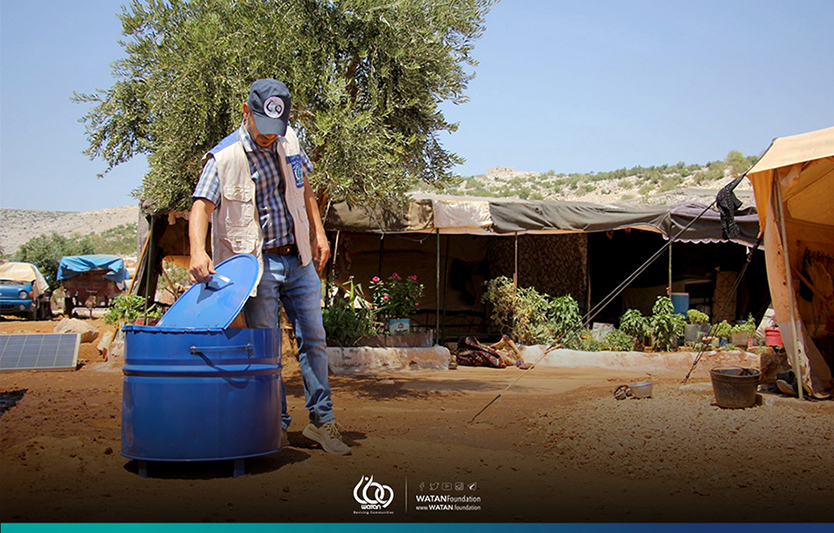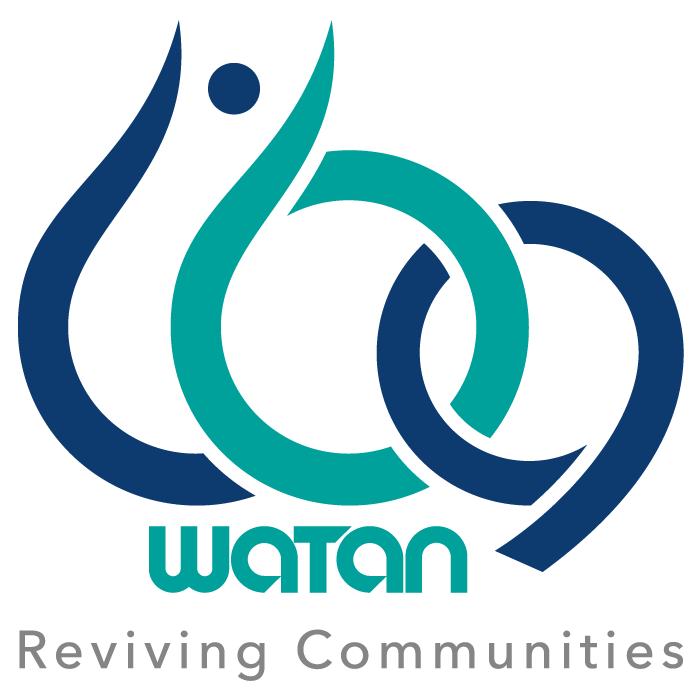
Families in northern Syria are unsettled and distraught by the bitterness of their displacement, to add to their suffering the infrastructure inside the camps has been deteriorating. A major project was launched to address these issues in the following camps: Nahnu Ummah, Al-Nuri, Thebes city, Abna’ Hama, Al-Malaab (Kafr Daryan), Al-farat, Umm Jalal, WATAN Camp II, Al-Farajah. The following services were planned:
- Supplying sterilised water through tanks.
- Removal of solid waste.
- Emptying septic tanks.
- Distribution of personal hygiene baskets.
- Regular health awareness campaigns.
- Distribution of garbage containers.
- Building regular blocks bathrooms as well as those for disabled people.
- Contracting workers to clean the bathroom blocks on a daily basis.
- Paving roads.
- Constructing sewage lines with water pits, to convert wastewater into water suitable for irrigation.
- Building wells, constructing reservoirs, implementing water networks, electric generators as well as a solar energy system to operate the wells.
The project launched at the beginning of 2021 and is still ongoing. In addition to providing daily services, continuing to extend the sewage lines, the following activities were carries out during the month of March 2022:
- Continuing to operate the water pumping stations. This was done in the Nahnu Ummah Camp, Taybeh City, Kafr Daryan and WATAN Camp II. Supplying all stations with diesel, oil and filters.
- Distribution of toilet cleaning equipment to 21 workers across the different camps.
- Completing construction of sewage lines in the camps: Al-Malaba, Al-Furat, Umm Jalal, Al-Faraja and the village of Kafr Daryan.
- By the end of February, the number of beneficiaries reached 3,632, with 395 awareness sessions held in the camps.
- Several activities were completed and are no longer ongoing and this included extending the water networks and road paving.
Based on the latest update, the number of beneficiaries of these services reached: 3,678 families, equating to 21,319 individuals and accordingly, reducing the prevalence of diseases in the camps as a result of removing their causes, while ensuring the access of sterilized water to all families, thus reducing their financial burdens.
The project is expected to contribute to the following positive results:
- Promoting personal hygiene by providing sterile water, removing waste, and reducing the spread of diseases and epidemics.
- Supporting families with low incomes, widows and people with special needs, and alleviating the financial burden on their shoulders.
- Safe disposal of solid waste in camps and transferring it to a special environment.
- Establishing a sewage network that can be used in the future, to expand the network and accommodate a larger number of beneficiaries.

